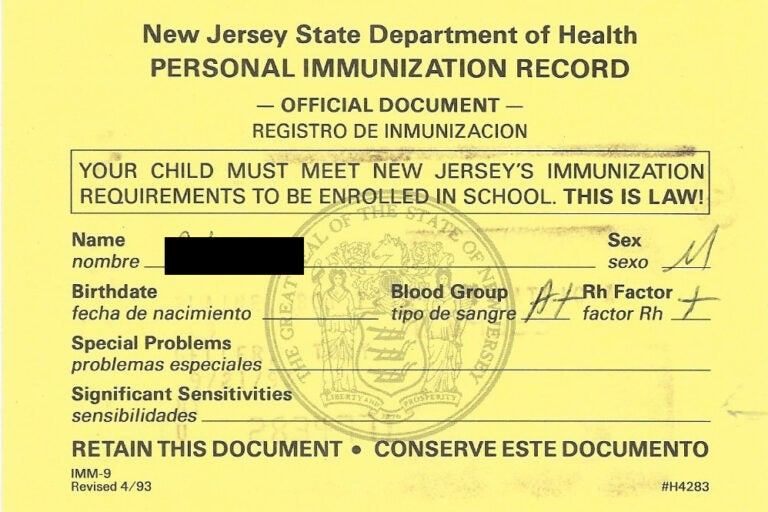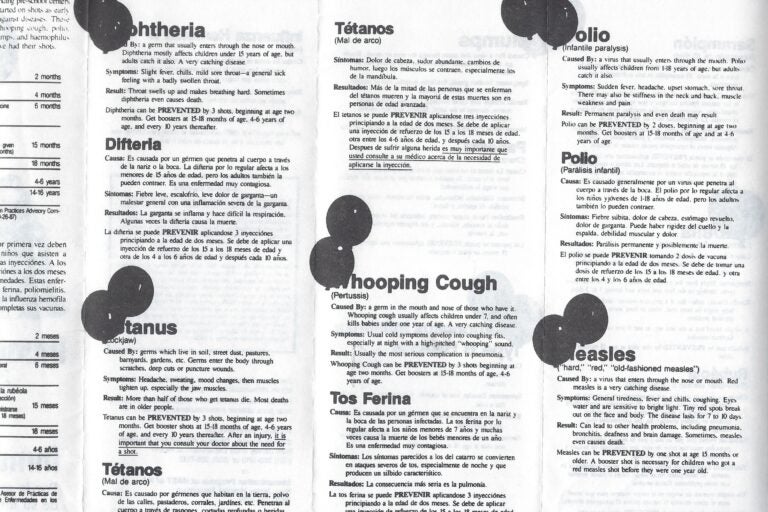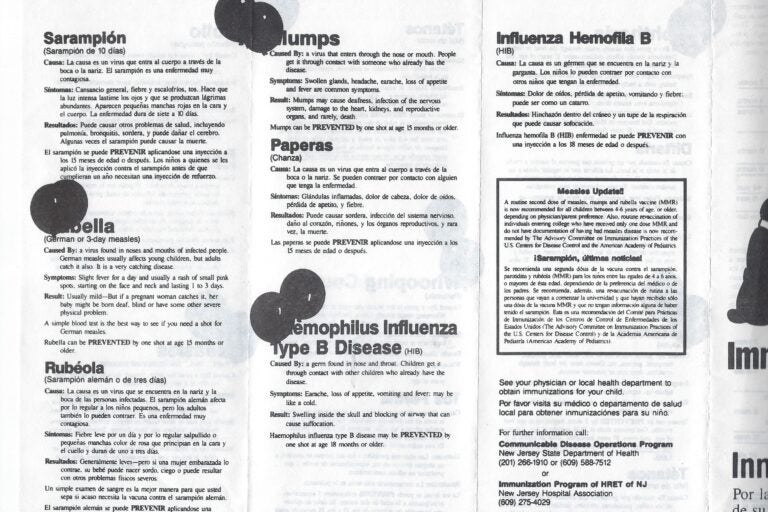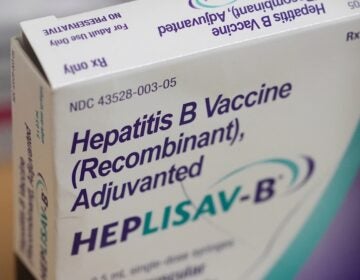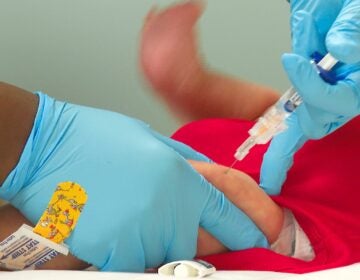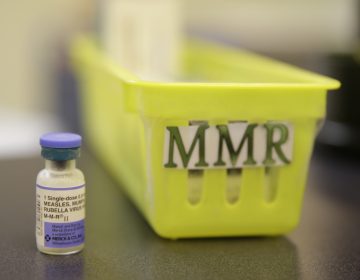How to track down your childhood vaccination records in Pennsylvania, New Jersey and Delaware
As infectious disease outbreaks are rising globally, health experts recommend people confirm their vaccination status, especially for childhood immunizations.
Listen 2:24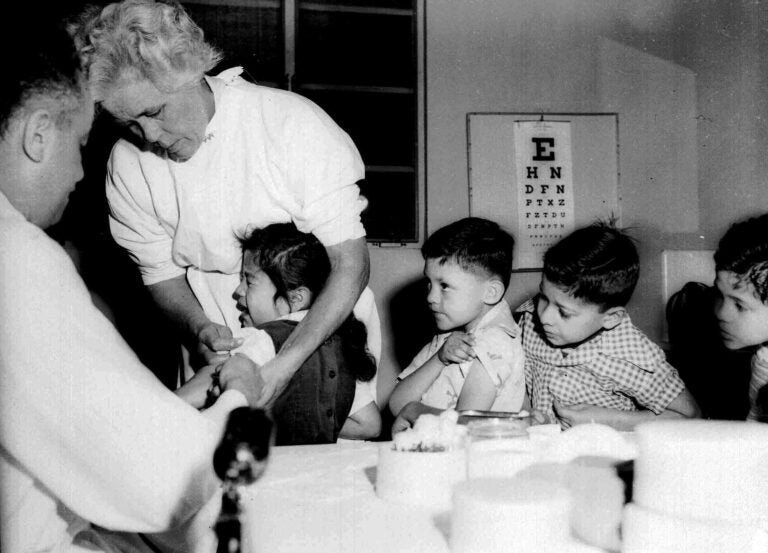
First and second graders at St. Vibiana's school are among the first to be inoculated for polio with the Salk vaccine in Los Angeles, Calif., April 18, 1955. (AP Photo)
From Philly and the Pa. suburbs to South Jersey and Delaware, what would you like WHYY News to cover? Let us know!
So far, there’s only been a handful of measles cases in the Philadelphia region, but peak summer travel season is fast approaching.
Public health experts urge people planning to visit areas with larger infectious disease outbreaks to check their vaccination status, which may require locating their childhood immunization records.
“Working with your health care provider will definitely help with keeping your records available in centralized areas so that you can make sure that you’re up to date as best as possible,” said New Jersey Department of Health State Epidemiologist Dr. Tina Tan.
Vaccines for diseases like hepatitis B, measles, mumps, rubella and polio are given during infancy and early childhood.
Today, those shots are recorded in electronic health records systems, but for many older adults, their vaccine histories were kept in paper files that may have been damaged, destroyed or lost to time.
“If you cannot find your vaccine records, you might need to get some of your vaccines again,” Tan said. “That’s not necessarily ideal, but it is definitely safe to repeat vaccines.”
Going straight to the source
There are many things people can try before they consider getting revaccinated. They can first check with their childhood pediatricians’ offices or current primary health care providers.
These offices may still have the paper records, or they’ve converted them into digital files.
“If people have been pregnant, you probably have been tested for certain protection against certain vaccine-preventable diseases, so your obstetrician’s office might also have that information,” Tan said.
However, this might not be an option for everyone. In states like Delaware, New Jersey and Pennsylvania, health providers are only required to keep medical records of former patients for a minimum of seven years after the last appointment. Then, they can be destroyed.
Other practitioners and offices may no longer be in business.
In those cases, Tan said people can check if their childhood vaccine records are on file with schools and colleges that often request documentation for incoming students.
“The military, if you were enlisted, might have records of the immunization as well,” she said.
State immunization registries
People can also request information from their state health departments, many of which maintain statewide immunization registries that store vaccine histories of current and former residents.
“It will vary by state on how far back the records might go in the registry,” Tan said.
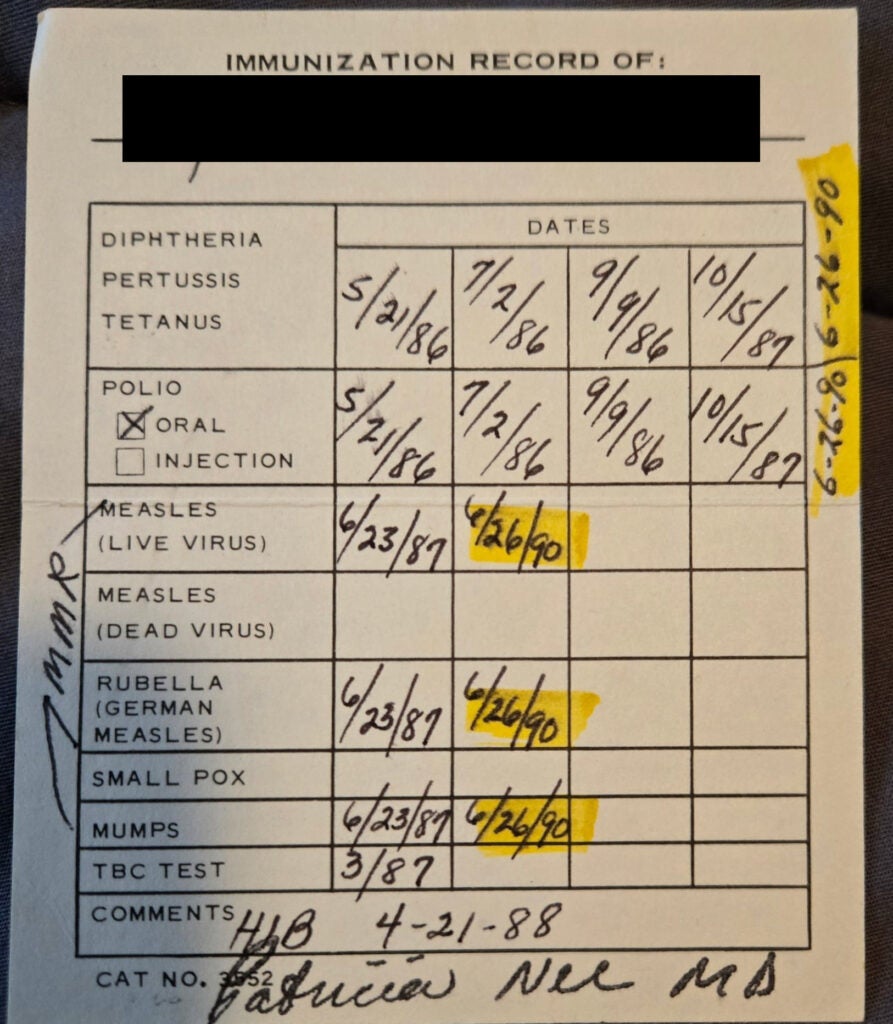
The New Jersey Immunization Information System was created in 1997, but it didn’t become mandatory for providers to submit vaccinations to the registry until 2012.
People who got childhood vaccines in the Garden State can request a copy of their immunization history through an online form or by calling the state’s Vaccine Preventable Diseases Program.
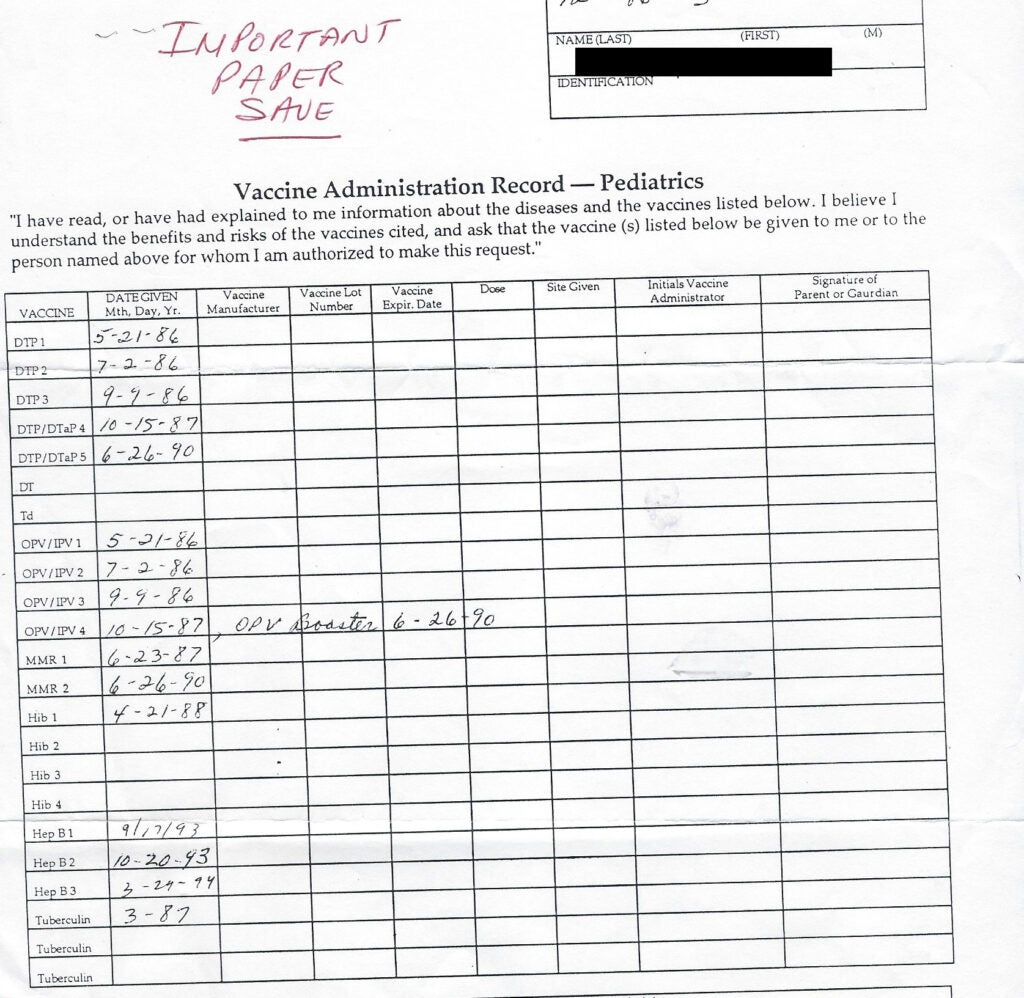
In Pennsylvania, immunization information is kept in the Pennsylvania Immunization Electronic Registry System dating back to 2000. Participation in the state registry is voluntary, though, so pediatricians and providers are not required to submit data.
Pennsylvanians can request a copy of their immunization history through an online form or email RA-DHVaxRecords@pa.gov for help.
The Delaware Department of Health and Social Services oversees the state’s Immunization Information System, also called DelVAX. The state offers a public portal for current and former residents to look up their vaccination histories for shots reported by a health care provider.
State officials said the likelihood of gaps in data and records increases with a person’s age.
“However, Delaware’s Immunization Program maintains records dating back to the 1970s, and in many cases, we’ve been able to successfully locate and provide immunization history based on the information available in our system,” officials said.
Serology testing for immunity
If people still cannot locate their childhood immunization records or they’re not available in state registries, Tan said some health providers might recommend serology testing, or titer testing, which can check for immunity by measuring antibodies in a person’s blood.
“Sometimes, the amount of antibodies will help physicians and health care providers determine whether you might be protected from certain diseases,” she said.
But titer testing isn’t commonly recommended because the results can be inexact, Tan said. And for some vaccine-preventable diseases, such as pertussis, or whooping cough, and influenza, no titer tests exist to confirm immunity.
These types of tests are more often recommended for nurses, doctors, other health care workers and global aid workers, who are most likely to encounter sick people.
When in doubt, revaccinate
That’s why some health providers may recommend revaccination, especially if someone’s risk of becoming ill is high because of travel plans to states with known outbreaks or parts of the world where some diseases are endemic.
The Centers for Disease Control and Prevention also recommends an additional measles shot for older adults who received an earlier version of the vaccine in the 1960s.
“People vaccinated prior to 1968 with either inactivated (killed) measles vaccine or measles vaccine of unknown type should be revaccinated,” the federal agency states on its website. “This recommendation is intended to protect those who may have received killed measles vaccine. This vaccine was available in 1963–1967 and was not effective.”
Health providers may also recommend revaccination for people who’ve gone through chemotherapy, bone marrow transplants and other treatments that may seriously weaken the body’s immune system.
Tan said this is typically done on a case-by-case basis, “and again, it’s safe to get those repeat vaccines.”
People who have paper immunization records can bring them to their current health care providers to be added to their electronic medical records to ensure the information follows them throughout their lives, Tan said.

Get daily updates from WHYY News!
WHYY is your source for fact-based, in-depth journalism and information. As a nonprofit organization, we rely on financial support from readers like you. Please give today.



